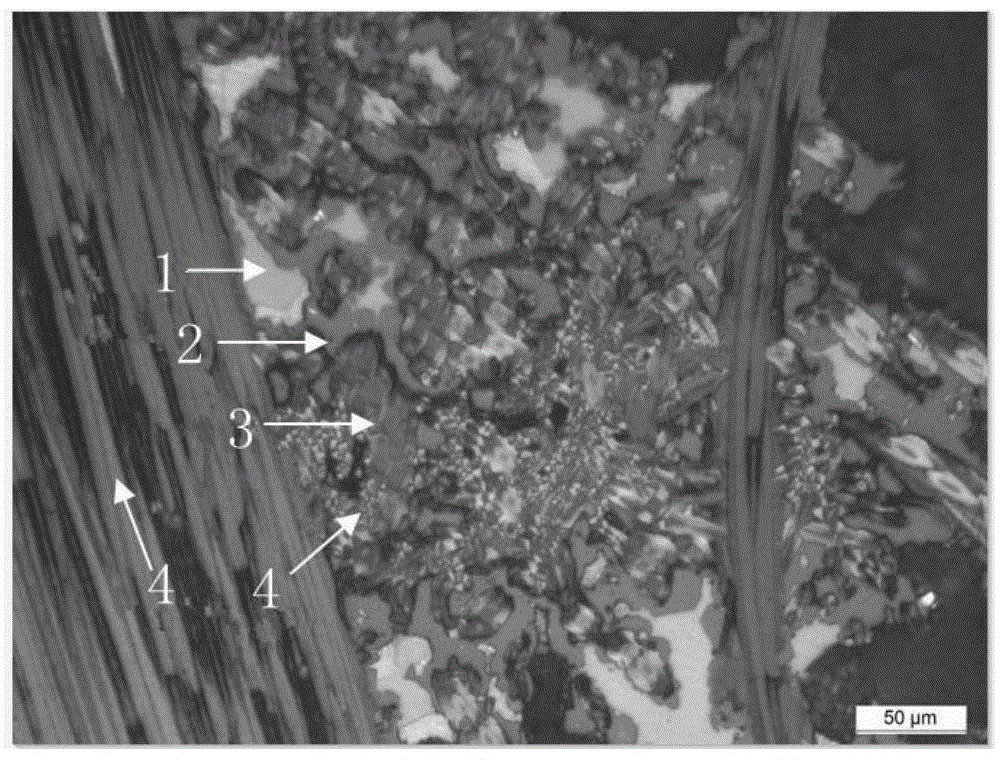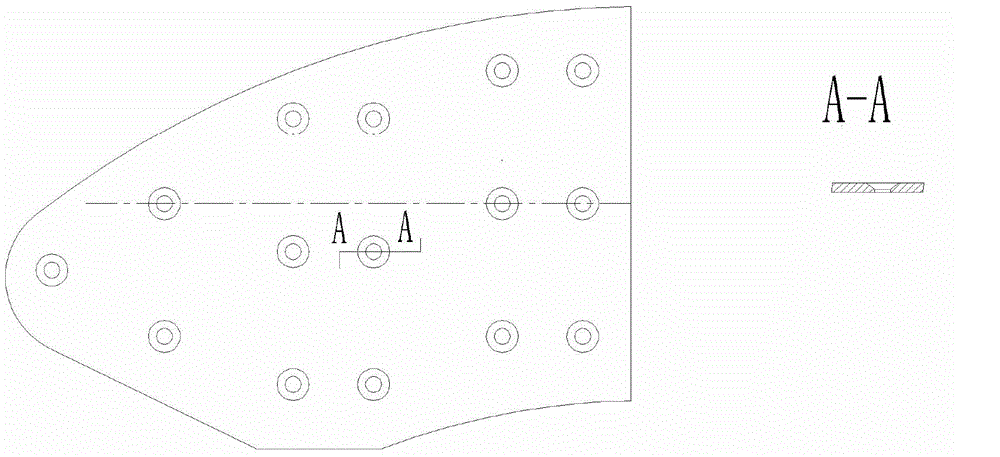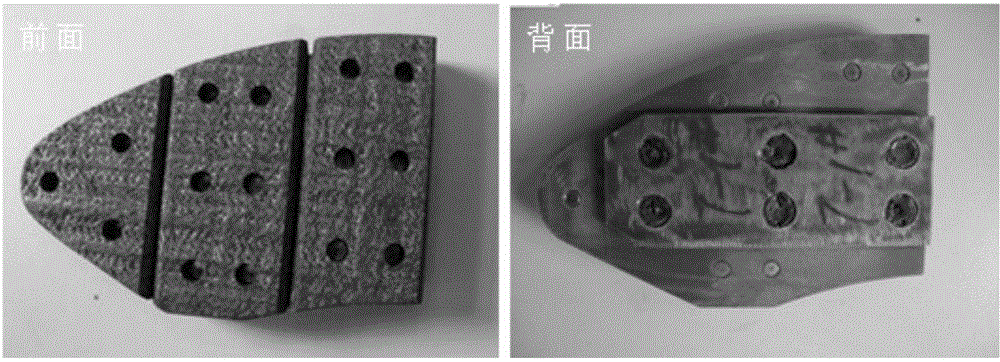A carbon-ceramic brake pad for high-speed trains and its preparation method
A technology for brake pads and high-speed trains, applied to friction linings, mechanical equipment, etc., can solve problems such as difficulty in meeting braking requirements and low mechanical properties of materials, avoiding graphitization treatment, high friction coefficient, and friction coefficient. and stable effect
- Summary
- Abstract
- Description
- Claims
- Application Information
AI Technical Summary
Problems solved by technology
Method used
Image
Examples
Embodiment 1
[0058] (1) Use the PAN type T700 (12K) carbon fiber produced by Japan's Toray Corporation (Toray) to make the net tire and no-weft fabric, and use a single layer of 0° no weft fabric, net tire layer, 90° no weft fabric, and net tire The layers are superimposed in sequence, and then the density is 0.52g / cm2 using the method of relay acupuncture 3 carbon fiber felt;
[0059] (2) Under an argon atmosphere, the carbon fiber felt is subjected to a high-temperature heat treatment at 1600°C for 20 hours, and the control pressure is 0.1Mpa during the high-temperature heat treatment;
[0060] (3) Put the heat-treated carbon fiber mat into the deposition furnace, use natural gas as the carbon source gas, hydrogen as the dilution gas, the volume ratio of natural gas and hydrogen is 1:3, and deposit at 1000 ° C by thermal gradient chemical vapor deposition Pyrolytic carbon matrix with a density of 1.32 g / cm after 300 hours of deposition 3 Low-density C / C porous body material, when depos...
Embodiment 2
[0071] (1) Use the PAN type T700 (12K) carbon fiber produced by Japan's Toray Corporation (Toray) to make the net tire and no-weft fabric, and use a single layer of 0° no weft fabric, net tire layer, 90° no weft fabric, and net tire The layers are stacked in sequence, and then the density is 0.55g / cm 3 carbon fiber felt;
[0072] (2) Under a nitrogen atmosphere, the carbon fiber felt is subjected to a high-temperature heat treatment at 1600°C for 18 hours, and the control pressure is 0.12Mpa during the high-temperature heat treatment;
[0073] (3) Put the heat-treated carbon fiber mat into the deposition furnace, use propylene as the carbon source gas, and hydrogen as the dilution gas. The volume ratio of propylene to hydrogen is 1:2, and the thermal gradient chemical vapor deposition method is used at 1100 ° C. The pyrolytic carbon substrate was deposited under the bottom, and the density was 1.43g / cm3 after 380 hours of deposition 3 The C / C porous body material, when depos...
Embodiment 3
[0086] (1) The PAN type XK-12-1 (12K) carbon fiber produced by Dalian Xingke Carbon Fiber Co., Ltd. is used to make the net tire and no weft cloth, and the single layer of 0° no weft cloth, net tire layer, and 90° no weft cloth , Mesh tire layers are stacked in turn, and then made by relay acupuncture method with a density of 0.20g / cm 3 carbon fiber felt;
[0087] (2) Under a nitrogen atmosphere, the carbon fiber felt is subjected to a high-temperature heat treatment at 1600°C for 5 hours, and the control pressure is 0.2Mpa during the high-temperature heat treatment;
[0088] (3) Put the heat-treated carbon fiber felt into the deposition furnace, use natural gas as the carbon source gas, hydrogen as the dilution gas, the volume ratio of natural gas and hydrogen is 1:1, and use thermal gradient chemical vapor deposition method to deposit at 1100 °C Pyrolytic carbon matrix with a density of 1.0 g / cm produced after 220 hours of deposition 3 Low-density C / C porous body material,...
PUM
| Property | Measurement | Unit |
|---|---|---|
| density | aaaaa | aaaaa |
| density | aaaaa | aaaaa |
| density | aaaaa | aaaaa |
Abstract
Description
Claims
Application Information
 Login to View More
Login to View More - R&D
- Intellectual Property
- Life Sciences
- Materials
- Tech Scout
- Unparalleled Data Quality
- Higher Quality Content
- 60% Fewer Hallucinations
Browse by: Latest US Patents, China's latest patents, Technical Efficacy Thesaurus, Application Domain, Technology Topic, Popular Technical Reports.
© 2025 PatSnap. All rights reserved.Legal|Privacy policy|Modern Slavery Act Transparency Statement|Sitemap|About US| Contact US: help@patsnap.com



